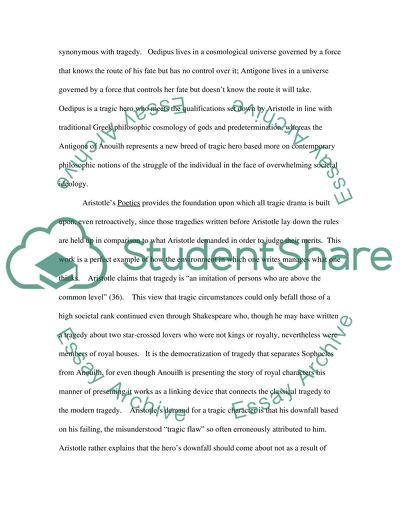Cite this document
(“Comparing oedipus and antigone as tragic heroes Essay”, n.d.)
Retrieved from https://studentshare.org/literature/1526013-comparing-oedipus-and-antigone-as-tragic-heroes
Retrieved from https://studentshare.org/literature/1526013-comparing-oedipus-and-antigone-as-tragic-heroes
(Comparing Oedipus and Antigone As Tragic Heroes Essay)
https://studentshare.org/literature/1526013-comparing-oedipus-and-antigone-as-tragic-heroes.
https://studentshare.org/literature/1526013-comparing-oedipus-and-antigone-as-tragic-heroes.
“Comparing Oedipus and Antigone As Tragic Heroes Essay”, n.d. https://studentshare.org/literature/1526013-comparing-oedipus-and-antigone-as-tragic-heroes.


